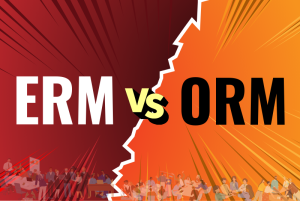Crisis Communication and Management (CCM) is a critical element of Enterprise Governance, and is the only time the Board gets involved directly with the communications function of the organisation. This is because CCM is about brand protection, and the Board is, first and foremost, the ambassador of its brand. The Board is responsible for ensuring the firm’s sustainability and continuity, and protecting its value. Any threat to the brand in the form of a negative incident/event, will put this value at risk. When anticipating risk, risk managers must therefore factor in crisis communication as it will be pivotal in managing perceptions of the brand.
Crisis management is about how an organisation responds to incidents in order to control potential short and long term negative repercussions. To be able to do this, the organisation needs clear, concise information to help it develop a correct response to the situation. In any incident that happens in a short space of time, there is inevitably confusion, followed by misinformation. Proper information is necessary to counter this misinformation, establish certainty and minimise the disruption stemming from the incident. The firm’s priority will be to lessen the negative impact of the incident on operations and its reputation.
Clarity and consistency of information released post-incident will establish that the company is aware of the situation but is in control of it. This reassures stakeholders and shores up confidence in the management of the organisation. Maintaining this confidence is invaluable as it will ultimately retain customer trust, and be reflected in the share price of the company, both of which are critical to its continued survival. But at the core of it all is releasing the correct information at the material time. The first rule of crisis communication is for the organisation to control the narrative in order to protect the brand.
It is worth noting that crisis communication and management starts long before the event happens. Crisis presupposes threat, and threats to the operation of business as usual is a risk that has to be considered as a matter of course. Crisis communication and management is therefore “locked into” the general scheme of things, and has to be regarded as much a part of the picture of business continuity management as disaster recovery is. It has to be planned and strategised for accordingly as it will inevitably involve all levels of management. Rule of thumb is, plan ahead; don’t wait for the crisis to hit. Managing an untoward event as it takes place is not the time to be testing mitigation measures to see if they work.
Similarly, crisis communication and management must run in parallel with, and in support of, mitigation measures that have been put in place. Effective crisis communication covers the clear identification of the incident(s); what has been done to remedy the situation; how and when recovery is expected; and follow-up reporting and monitoring. All this, of course, requires a considerable amount of effort, and the question frequently asked is, is it worth it? After all, how can any firm adequately prepare for something that it has never experienced? The Covid-19 pandemic has offered some insights into this.
Quite a number of organisations did indeed have contingency plans for events such as the pandemic. But even they will admit that these preparations fell far short of dealing with the real thing. The difficult truth is that no amount of preparation will ever be enough, regardless of the resources the organisation has at its disposal. Just getting started with preparations to face a crisis may be the most effective mitigating measure; it certainly sets the necessary tone, and creates awareness of the risks that confront the organisation. The importance of raising awareness of possible untoward incidents throughout the organisation cannot be understated.
Staff who must step up in a crisis need to be identified, and be primed on what to say. Sometimes the best spokesperson for the event may not be the most senior. Communicating effectively requires a certain skillset; people need training. All this is part of the macro crisis communication plan. Imagine scenarios, then try to put mitigations in place. Have an ear to the ground, and listen to the noises on the grapevine. Learn from the mistakes made by others, and incorporate best practices into crisis communication strategies. It will be to the organisation’s advantage to learn how to use as many channels of communication as possible. Risk professionals really do have their work cut out for them where crisis communication is concerned.
Besides the actual work of communicating effectively during the crisis, there are other factors to consider as well, such as maintaining staff morale and managing the psychological effects of the event, and public perception of the company as the event and its knock-on effects unfold. While crises normally happen suddenly and seemingly out of the blue, research and experience have shown that they do not happen totally without warning. They are also more likely to become the norm rather than the exception. Perhaps the most important step that risk professionals can take then where crisis communication is concerned is to be always vigilant, and constantly listening.





























